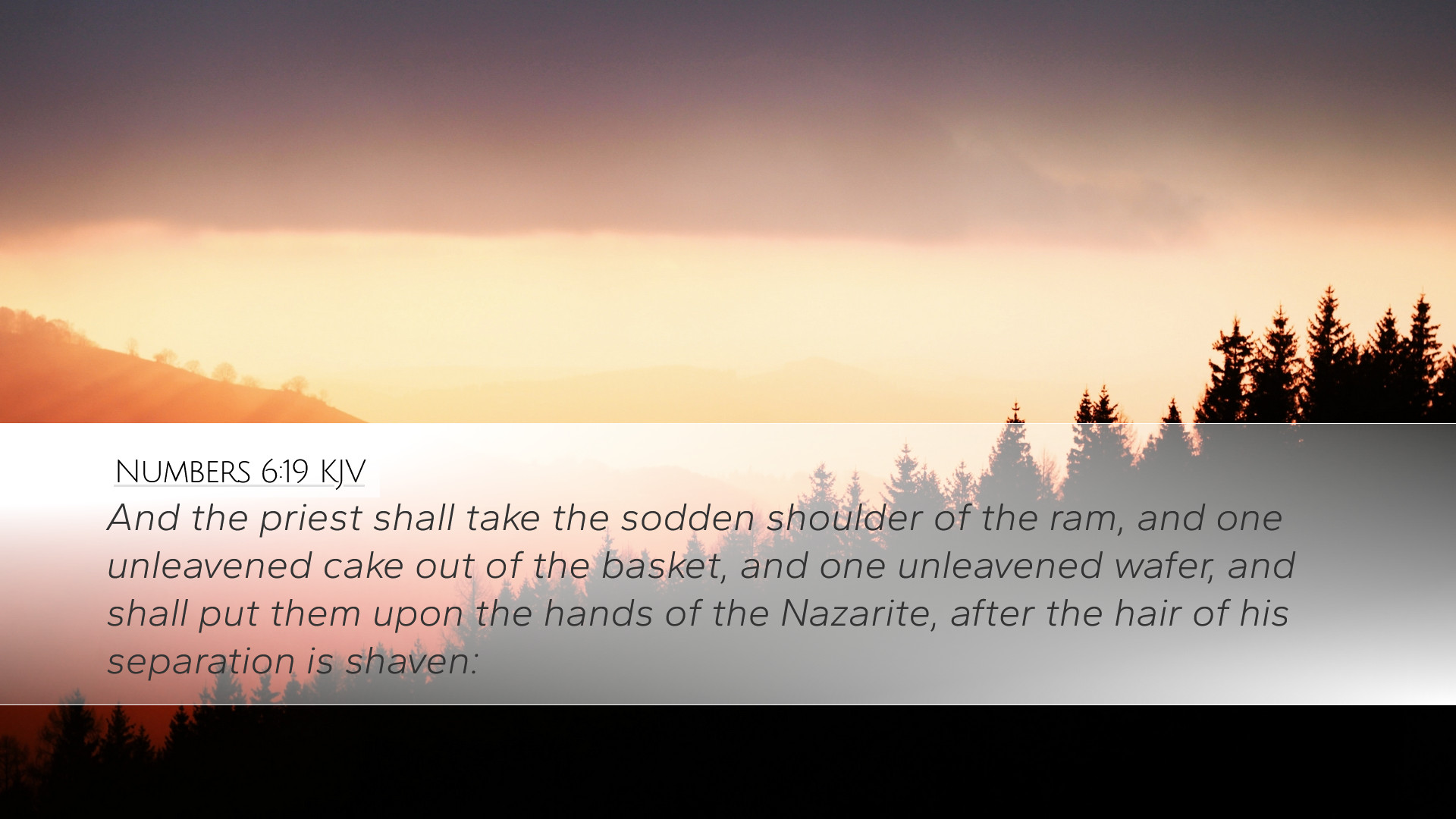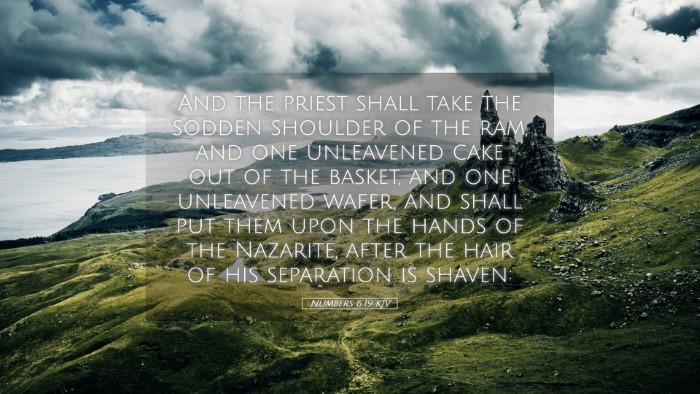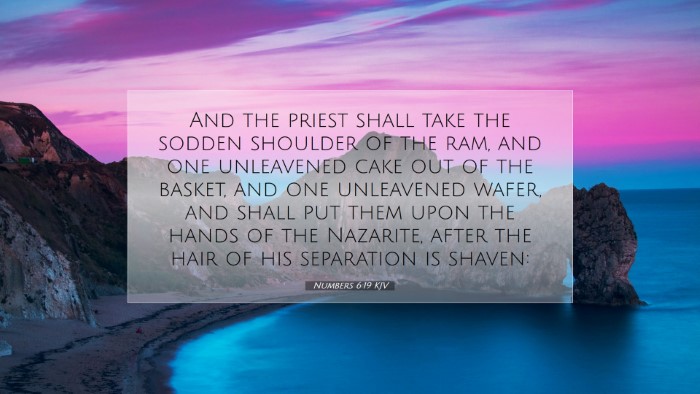Commentary on Numbers 6:19
Numbers 6:19 states:
"And the priest shall take the sodden shoulder of the ram, and one unleavened cake out of the basket, and one unleavened wafer, and shall put them upon the hands of the Nazarite, after the hair of his separation is shaven."
This verse comes at the conclusion of the Nazirite vow, a significant section that lays out the rules and regulations for those who devote themselves to the Lord for a period of time. The book of Numbers provides rich insights into the holiness and dedication required in covenant community life.
Overview of the Nazirite Vow
The Nazirite vow, detailed in Numbers 6, represents a form of consecration to God, marked by specific abstentions and offerings. The mention of the priest in this verse encapsulates the priestly role in facilitating spiritual commitment and community worship. Each element mentioned in the offerings serves as a significant reminder of the sanctity and purity that God desires from His people.
Insights from Public Domain Commentaries
Matthew Henry's Commentary
Matthew Henry emphasizes the importance of the ceremonial actions outlined in this verse. He notes that the physical representations of the Nazirite's dedication, through the offerings of the cakes and the shoulder of the ram, signify the completion of their commitment. He highlights:
- The significance of the offerings: Cakes and wafers, being unleavened, symbolize purity and sinlessness, appropriate for offerings made to God.
- The act of shaving: This represents the end of the Nazarite’s vow, and is a public acknowledgment of their dedication to God during that period.
- The role of the priest: Henry further elaborates that the priest’s involvement signifies the mediatory role of Christ, foreshadowing our relationship with God through Jesus’ redemptive work.
Albert Barnes' Notes on the Bible
Barnes offers a detailed examination of the ceremonial laws, stressing the nature of the offerings. He points out:
- The shoulder of the ram: Represents the strength of the individual’s devotion, as the shoulder is a symbol of burden-bearing.
- Unleavened bread: reaffirms the concept of purity, as leaven often symbolizes sin or corruption in biblical texts.
- Meaningful gestures: The act of placing these offerings upon the hands of the Nazarite signifies that the commitments are now officially transferred to the Lord, acting as a testament of faithfulness and dedication.
Adam Clarke's Commentary
Clarke provides additional context by connecting the Nazirite vow with broader biblical themes:
- Connection to Israel's identity: The Nazirite system reveals God’s call for His people to be unique and set apart from the surrounding nations.
- Typological significance: The offering can be seen as a type of Christ, with the Nazarite's destiny foreshadowing the ultimate sacrifice made by Jesus for humanity.
- The importance of vows: Clarke notes that such vows highlight the gravity of personal dedication to God, urging believers today to carefully consider their commitments.
Theological Reflections
The theological implications of Numbers 6:19 go beyond mere ritual. The emphasis on fruitfulness, purity, and divine relationship is foundational for understanding one's walk with God:
- Commitment to Holiness: The Nazirite vow calls both the ancient Israelites and contemporary believers to a life characterized by separatedness unto God.
- Role of the Priesthood: Reflecting on the priest's role reinforces the belief in the necessity of intercession, typifying Christ's priestly ministry.
- Covenant Community: This passage cultivates an understanding of the body of believers as a community dedicated to collective holiness and service.
Practical Applications
This scripture challenges pastors, students, theologians, and Bible scholars to engage with the text in a way that impacts their ministries:
- Encouragement of Personal Vows: Encourage congregants to consider personal vows of dedication and how those vows manifest in their daily lives.
- Teaching on Holiness: Use the Nazirite vow as a teaching tool to address holiness, commitment, and the cost of discipleship in contemporary life.
- Community Accountability: Foster an environment in the church where individuals support each other in their vows and commitments to God.
Conclusion
Numbers 6:19 serves as a powerful reminder of God's call to holiness, dedication, and the significance of priestly mediation. As pastors, students, theologians, and scholars delve into this brief but profound verse, they can glean insights that challenge and enrich their understanding of their own commitments to God and His community. The synthesis of these commentaries allows for a deepening awareness of the nature of God’s desire for His people, both in the Old Testament period and in contemporary faith practice.


